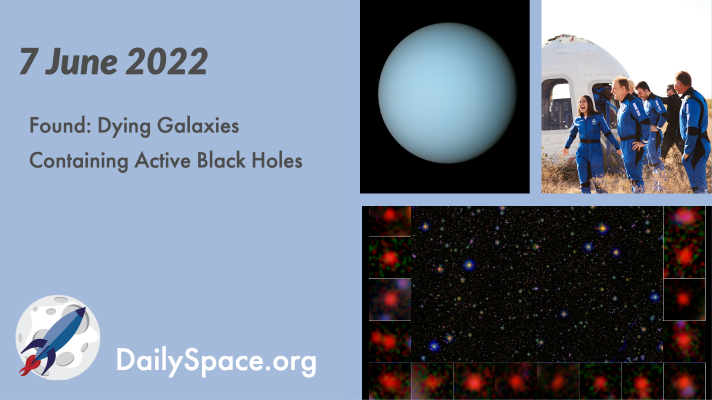
Jun 8, 2022 | Asteroids, Blue Origin, Climate Change, Cosmology, Crewed Space, Daily Space, Earth, Galaxies, Neptune, Rockets, ROSCOSMOS, Space China, Spacecraft, Supermassive Black Holes, Uranus
Astronomers combined observations of far distant galaxies exhibiting no signs of star formation and found active supermassive black holes that may have contributed to the evolution of their parent galaxies. Plus, rocket launches, detecting earthquakes, and why Uranus and Neptune are different shades of blue.
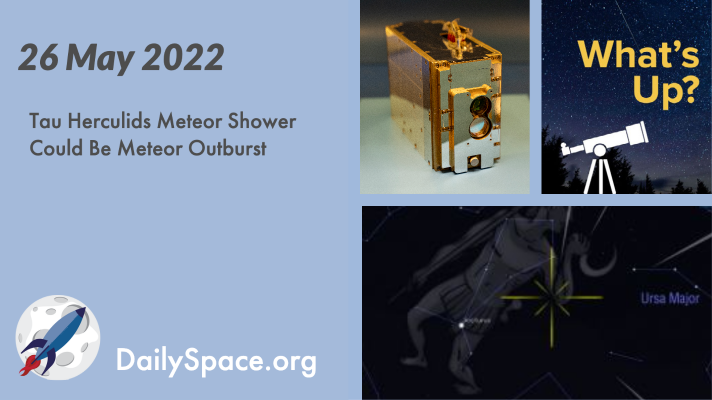
May 27, 2022 | Climate Change, Comets, Cosmology, Daily Space, Earth, Guest Interview, JWST, Rockets, Spacecraft, SpaceX
Due to the gravitational pull of Jupiter on the fragments and dust of comet 73P/Schwassmann-Wachmann, Earth’s orbit may be moving through a dense portion of the comet’s trail on May 31. This alignment could result in an unusually spectacular meteor outburst, and we’ll interview astronomer Pierre Martin about this possible event. Plus, a SpaceX launch that wasn’t Starlink, a new solar sail, and JWST.
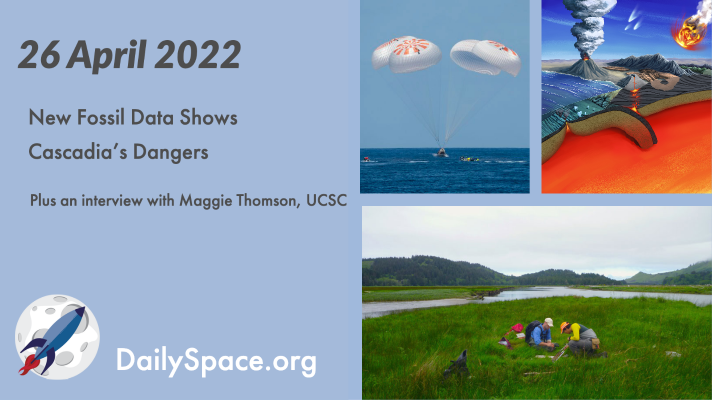
Apr 27, 2022 | Asteroids, Astrobiology, Climate Change, Crewed Space, Daily Space, Earth, Guest Interview, Lucy, Mars, OSIRIS-REx, Rockets, Space China, Spacecraft, SpaceX, Starlink
An analysis of sediment core samples taken at the Salmon River Estuary in Oregon provides evidence that the massive 1700 Cascadia earthquake caused 15 meters of slip along the shoreline, which lead to over a meter of coastal subsidence. Plus, all the rocket launches, a few mission updates, making Mars bricks with urea, and an interview with Maggie Thompson from UC Santa Cruz about using methane as a biosignature.
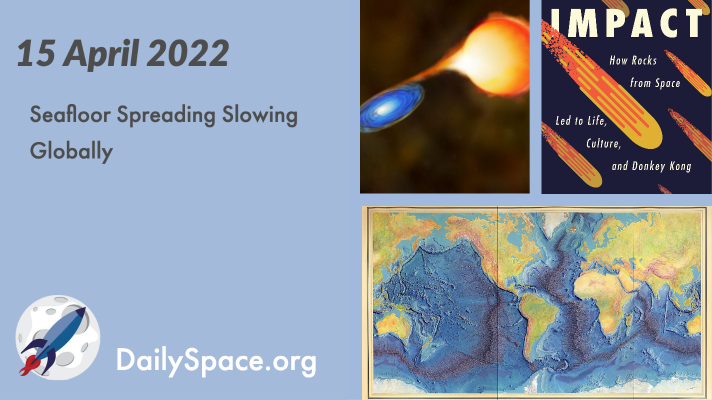
Apr 18, 2022 | Book Club, Climate Change, Daily Space, Earth, Review, Stars, Supernovae
An analysis of the relative movements of 18 tectonic ridges over the past 19 million years finds that the rate of seafloor spreading has dropped by about 40% on average globally. Plus, stars are getting naked, climate change is heating things up, and we review “Impact: How Rocks from Space Led to Life, Culture, and Donkey Kong” by Greg Brennecka.
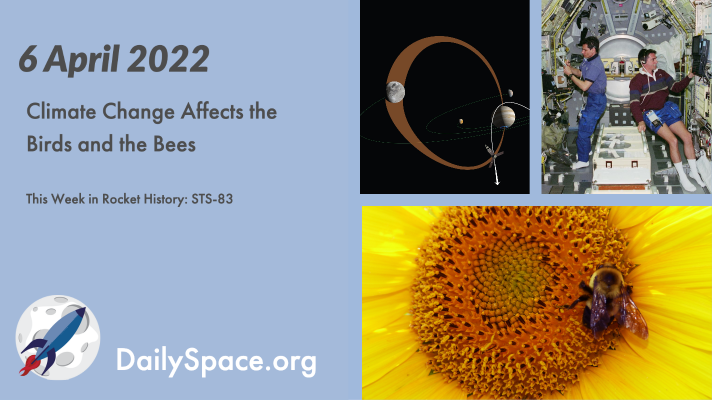
Apr 7, 2022 | Climate Change, Crewed Space, Daily Space, Earth, Jupiter, Moon, Random Space Fact, Science, Space History
From plastics invading the Arctic Ocean to the changing morphology of birds in response to rising temperatures and the problems with pathogens killing off pollinators like bees, we examine some of the effects of climate change on Earth’s ecosystems. Plus, Ganymede, moonlight, solar cells, and this week in rocket history, we look back at STS-83.
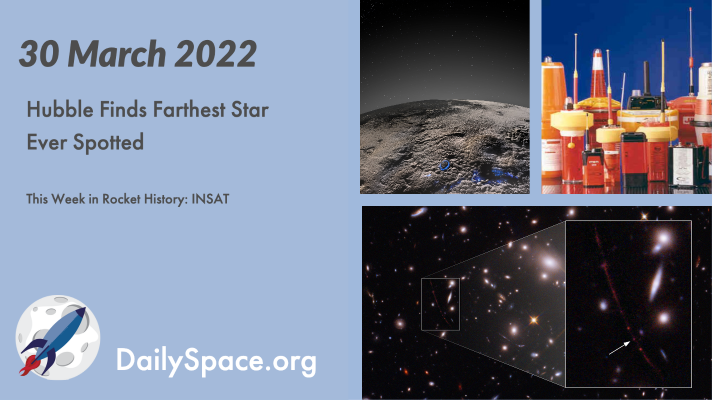
Mar 31, 2022 | Blue Origin, Climate Change, Crewed Space, Daily Space, Earth, Pluto & Charon, Rockets, Space China, Space History, Spacecraft, Stars
Researchers pouring through high-resolution Hubble images of galaxy clusters have found the gravitationally magnified light of a star that was shining just four billion years after the Big Bang, making this bright star the new record holder for the farthest ever spotted. Plus, some launches, ice volcanoes on Pluto, melting Arctic ice, and this week in rocket history, we look back at INSAT.








 We record most shows live, on Twitch. Follow us today to get alerts when we go live.
We record most shows live, on Twitch. Follow us today to get alerts when we go live.